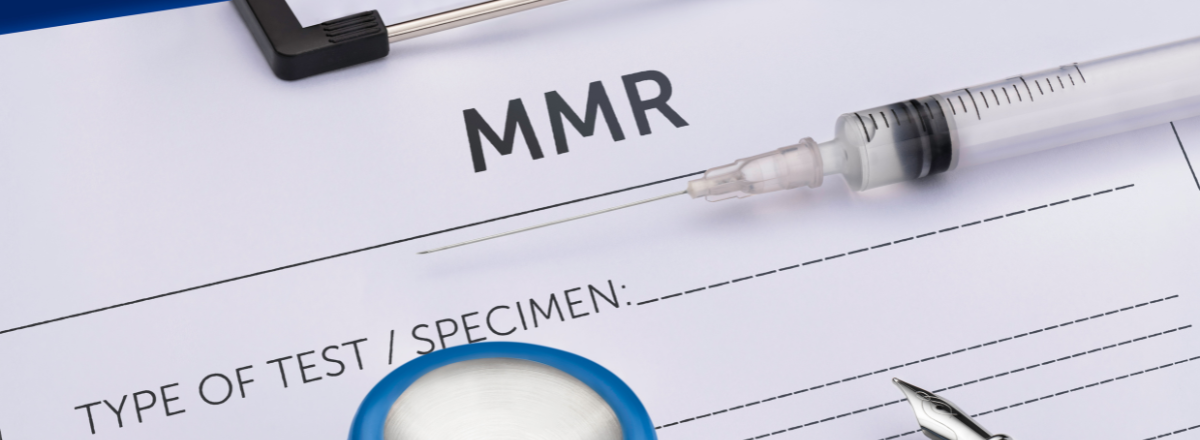Children born in the UK will be offered routine immunisations from the age of 8 weeks and it’s vital they have them. ‘Vaccines quite literally save lives,’ says ZoomDoc’s Chief Medical Officer and father of three, Dr Kenny Livingstone. ‘Not only do they protect your child against some really unpleasant diseases, they can also protect others who can’t be vaccinated due to specific health conditions, such as a chronic disease or compromised immune system.’
As well as protecting against disease, they can also help eradicate them – but only if vaccine uptake is high enough. Take polio, for instance. This life-threatening virus is now incredibly rare in this country, thanks to a successful vaccination programme. According to the NHS, ‘it’s only found in a few countries and the chance of getting it in the UK is extremely low.’
It hasn’t been seen in the UK since the mid-90s but last year, traces of poliovirus were found in London sewers. As a result, the UK’s Health Security Agency is keeping a close eye on it and is urging parents with primary school-age kids who aren’t up to date with vaccinations, in particular polio, to come forward for a catch-up jab after Easter.
If you’re worried your child missed some vaccinations or maybe you’ve changed your mind and want them to have theirs, it’s not too late. ‘It’s always a good idea to have vaccinations at the time they’re offered but it’s still better to have them later than never,’ says Dr Kenny. Here’s what your child should be vaccinated against and when. Talk to your GP to book them in for theirs ASAP.
Babies under 1
From the age of 8 weeks your baby will need three appointments every 4 weeks. Here’s what they’ll have at each one:
8-week appointment
6-in-1 vaccine
Rotavirus vaccine
Men B
The 6-in-1 protects against these 6 childhood diseases:
- diphtheria
- hepatitis B
- Hib (Haemophilus influenzae type b)
- polio
- tetanus
- whooping cough (pertussis)
12-week appointment
6-in-1 vaccine (2nd dose)
Pneumococcal (PCV) vaccine
Rotavirus vaccine (2nd dose)
16-week appointment
6-in-1 vaccine (3rd dose)
Men B (2nd dose)
Toddlers (1-5)
Age 1
Hib/Men C
MMR
Pneumococcal (PCV) vaccine (2nd dose)
Men B (3rd dose)
Age 2+
Flu (every year from the age of 2)
MMR (2nd dose)
Age 3 and 4 months
4-in-1 pre-school booster
This boosts their protection against:
- diphtheria
- tetanus
- whooping cough
- polio
Primary school age
Flu (every year usually given at school)
Secondary school age
Age 12/13
HPV vaccine
Age 14
3-in-1 teenage booster
Men ACWY
The 3-in-1 protects against:
- Tetanus
- Diphtheria
- Polio
Find out which vaccines adults are eligible for here
What should I do if my child’s missed some vaccinations?
It’s that simple. ‘They’ll have a record of what’s been done and can make any routine or catch-up appointments required,’ says Dr Kenny.
Read more about booking your baby or child’s appointment.
Are they safe?
Yes. ‘No vaccine can be approved without extremely strict safety checks,’ says Dr Kenny. ‘The Medicines and Healthcare Regulatory Authority (MHRA) looks at data from clinical trials and has extremely high standards of safety, quality and effectiveness before it will approve a vaccine to become available in the UK. Then, a second body, the Joint Committee on Vaccination and Immunisation (JCVI) will also consider vaccine safety thoroughly before rolling it out to the public.’
But doesn’t the MMR vaccine cause autism?
No. There is no link between the MMR vaccine and autism. However, it’s a case of mud sticks with this topic. It dates back to 1998 when the MMR vaccine was rolled out and a British doctor called Andrew Wakefield published ‘evidence’ of a link between the two in a medical journal. An investigation by the UK’s General Medical Council discredited this so-called evidence and found him guilty of misconduct, dishonesty and unethical behaviour but not until 2010 – enough time for thousands of parents to refuse the jab leaving their children unprotected against nasty diseases, such as measles.
‘I can assure people there is no link between MMR and autism and urge parents to vaccinate their children against measles, mumps and rubella as soon as possible, if they haven’t already,’ says Dr Kenny.
What about COVID vaccines for kids?
Current NHS guidance states that:
‘Everyone aged 5 (on or before 31 August 2022) and over can get a 1st and 2nd dose of the COVID-19 vaccine.
Children who turned 5 on or after 1 September 2022 can only get a 1st and 2nd dose of a COVID-19 vaccine if they’re either:
- at increased risk due to a health condition or because of a weakened immune system
- living with someone who has a weakened immune system.’
Talk to your GP if you think your child may need a COVID vaccine.




